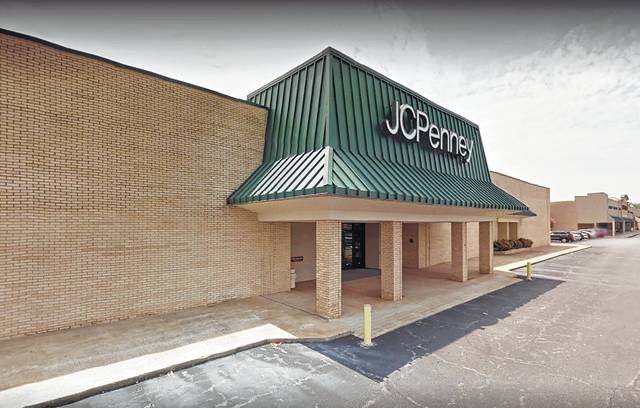EASLEY — The department store chain JCPenney recently revealed plans to shutter two distribution facilities and over 100 department stores across the country in an attempt to “redirect resources in higher-performing locations and initiatives.”
Unfortunately, the Easley store, which opened in 1998, didn’t make the cut.
No exact date has been given for the closings. Instead a company spokesperson stated the public could expect the changes to take effect over “the next few months.”
Marvin R. Ellison, chairman and CEO of JCPenney, stated that while the company delivered a net profit in 2016 — the first time since 2010 — he believed “aggressive action” needed to be taken to ensure sustainable growth within the company.
“During the year, it became evident the stores that could fully execute the Company’s growth initiatives of beauty, home refresh and special sizes generated significantly higher sales and a more vibrant in-store shopping environment,” Ellison said. “We believe the relevance of our brick and mortar portfolio will be driven by the implementation of these initiatives consistently to a larger percent of our stores. Therefore, our decision to close stores will allow us to raise the overall brand standard of the Company and allocate capital more efficiently.”
Despite Ellison’s assertion the decision was made to promote growth, the closing of 138 stores hasn’t exactly given stockholders a feeling of reassurance: At this time last year JCPenney was trading at $11.50 a share on the New York Stock Exchange.
Today? $5.47 a share — less than half. For comparison, stock prices a decade ago were over $70 a share.
Over the past several years, online retailers like Amazon have taken a huge chunk of profit margins from brick and mortar stores like JCPenney, many of which have struggled to maintain their customer base in an ever growing digital world.
Closing stores, Ellison said, will allow the company to refocus its sales to an online format.
“While many pure play e-commerce companies are experiencing dramatically increasing fulfillment costs, we are pleased with the double digit growth of jcpenney.com and how leveraging our brick and mortar locations is enabling us to offset the last-mile delivery cost,” said Ellison. “We believe the future winners in retail will be the companies that can create a frictionless interaction between stores and e-commerce, while leveraging physical locations to minimize the growing operational costs of delivery.”
As for the store in Easley — and the people that work there — that’s not much help.
Sarah Holland, manager, corporate communications and public relations officer for JCPenney, stated approximately 30 associates will be impacted at the Easley store which is slated to close in “mid June.” The store opened in 1998.
“It’s essential to adjust our store portfolio and invest in those locations that offer the best expression of the JCPenney brand and can function as a seamless extension of the omnichannel experience,” said Holland. “Taking actions that directly impact our valued associates and loyal customers is difficult, but we’ll go to great lengths to relocate esteemed leaders, while providing outplacement support services for those eligible associates who will be leaving the company.”
The company did state that associates who will be impacted by the store and distribution center closures will receive separation benefits, which includes assistance identifying other employment opportunities and outplacement services such as resume writing and interview preparation.
In all, the company is closing nearly 14 percent of its stores and while they declined to reveal the exact number of lost jobs, a “voluntary early retirement” program has been implemented for at least 6,000 employees.
The Greenville store, for now, will remain open.

